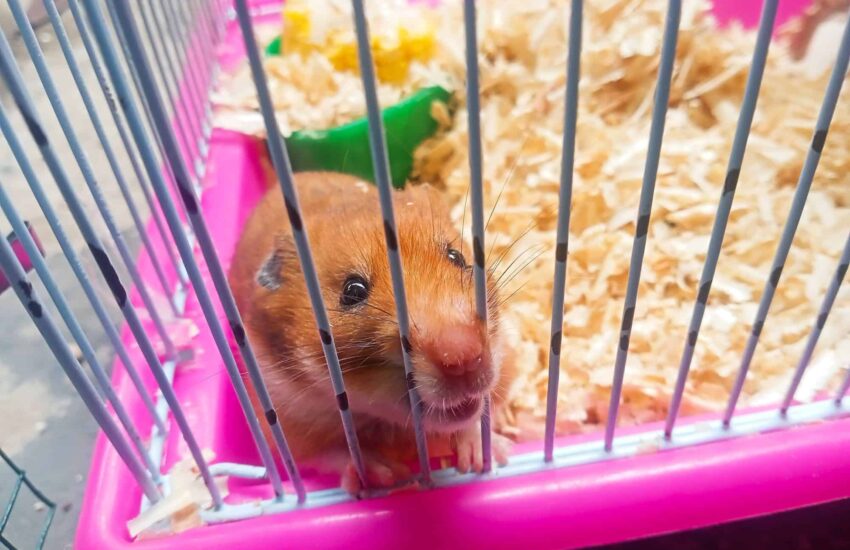Establishing a Hamster Care Routine
Caring for a hamster on a daily basis can seem overwhelming at first, but establishing a solid hamster care routine makes it manageable and enjoyable. As a pet owner, you want to ensure your furry friend is happy, healthy, and well-cared for. This article will guide you through setting up a daily, weekly, and monthly hamster care routine, ensuring you provide the best environment and care for your pet.
Daily Care Tasks for Hamster Well-Being
The foundation of hamster care lies in daily tasks that promote their health and happiness. Performing these essential activities every day helps establish a comfortable environment for your pet. This includes feeding, providing fresh water, and checking on their health and behavior. Daily interaction is also crucial for building a bond with your hamster and keeping them socialized.

Feeding Your Hamster
Ensure your hamster receives a balanced diet tailored to their specific needs. High-quality hamster pellets should form the basis of their diet, supplemented with fresh fruits and vegetables. Offer small, bite-sized pieces and remove uneaten portions after a few hours to prevent spoilage. Additionally, provide a small amount of timothy hay or chew sticks to assist with dental health. It’s essential to monitor your hamster’s eating habits closely, as changes in appetite could signal health issues.
Providing Fresh Water
Fresh water is crucial for your hamster’s hydration and overall health. Use a water bottle or a shallow dish, ensuring it is clean and filled with fresh water daily. Check the water supply every few hours, especially in warm weather, as hamsters can become dehydrated quickly. Remember to wash the bowl or bottle regularly to prevent algae buildup, as this can cause health problems for your pet.
Weekly Cleaning and Maintenance
To keep your hamster’s habitat in optimum condition, conducting thorough cleaning and maintenance tasks on a weekly basis is crucial. This routine includes replacing bedding, cleaning the cage, and inspecting toys. Regular maintenance can help reduce odors and prevent the spread of germs, ensuring a safe and healthy environment for your pet.
Changing Bedding and Cleaning the Cage
Remove the soiled bedding and replace it with fresh bedding once a week. Depending on your hamster’s habits, you may need to change it more frequently, particularly if they are primarily housed in one area. While changing the bedding, take the opportunity to clean the cage with a pet-safe disinfectant or warm soapy water. Avoid strong chemicals that may be harmful to your hamster. After cleaning, rinse thoroughly and let the cage dry completely before adding the fresh bedding.
Toy Inspection and Maintenance
Your hamster’s toys are essential for their physical and mental stimulation. Check their toys each week for signs of wear and tear, replacing any damaged items immediately. You can also rotate toys to keep your hamster engaged and entertained. Providing new toys and hiding spaces will encourage your hamster to explore and play, ultimately enriching their life.
Monthly Health Checks and Environment Updates
In addition to daily and weekly routines, taking time each month to conduct health checks and make environmental updates is vital. This involves monitoring your hamster’s health, assessing their habitat, and planning for any upcoming needs. These tasks not only ensure your pet remains healthy but can also alert you to potential issues before they become serious.
Health Monitoring and Vet Visits
Each month, observe your hamster for any signs of illness, such as changes in weight, fur quality, or behavior. Regularly check their teeth and nails to ensure they’re not overgrown. If you notice any concerning signs, schedule a visit with a veterinarian experienced in small animal care. Keeping records of their weight and any health issues can be particularly helpful during vet visits.
Refreshing the Habitat
Reassessing your hamster’s habitat each month can help ensure they have the best environment possible. Ensure that all accessories and items in the cage are safe and suitable. If necessary, upgrade your hamster’s habitat to a larger enclosure. Evaluate their wheel size and type, ensuring it meets their needs for exercise and comfort.
Key Takeaways
- Establish a daily routine involving feeding, watering, and health checks to maintain your hamster’s well-being.
- Perform weekly cleaning of the cage and inspect toys for safety and wear to keep the environment healthy.
- Conduct monthly health checks and refresh the living space to ensure your hamster’s habitat is safe and stimulating.
FAQ
1. What should I include in my hamster’s diet?
Hamsters thrive on a balanced diet that consists of high-quality pellets, fresh fruits, and vegetables. Small treats like seeds and nuts can also be included but should be offered in moderation. Avoid feeding them citrus fruits and any toxic foods like chocolate.
2. How often should I clean my hamster’s cage?
You should conduct a full cage cleaning once a week, replacing the bedding and thoroughly cleaning the cage. However, spot cleaning should be performed daily to remove soiled bedding and leftover food.
3. How do I know if my hamster is happy and healthy?
A happy and healthy hamster will be active, curious, and maintain a proper weight. Regularly monitor their eating habits, fur quality, and behavior. Changes in these factors may indicate underlying health issues.
4. Can I use regular household cleaners to clean the hamster cage?
No, you should avoid using regular household cleaners as they may contain harmful chemicals. Instead, opt for pet-safe disinfectants or warm soapy water, ensuring the cage is thoroughly rinsed and dried before returning your hamster.
5. How often should I take my hamster to the vet?
Annual veterinary check-ups are recommended for hamsters. However, if you notice any signs of illness, such as lethargy or changes in behavior, seek veterinary care immediately. Regular check-ups can help catch potential health issues early.
